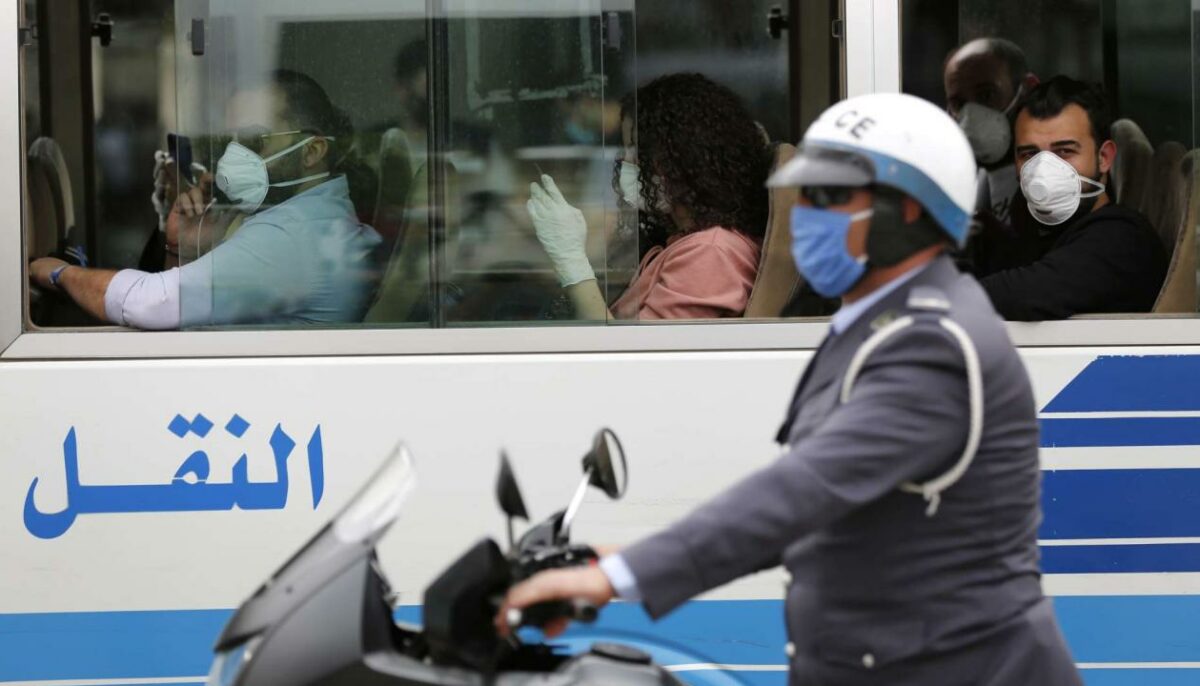The advent of COVID-19 (known locally as the coronavirus) in Lebanon last February has further deepened existing divisions within certain cities and villages: communities were either branded “epicentres” of the COVID-19 outbreak, or residents were considered blessed to have genetic and/or layered immunity against the virus.
This was largely due to the misleading and/or fake news surrounding the nature and modes of exposure to the virus, as well as the hidden conspiracies around it. Nevertheless, disseminating, correcting and rationalizing information is a responsibility which falls equally on journalists, the media and officials.
Disaster Shock and Data Chaos
February 21 was a turning point for everyone living in Lebanon after the Lebanese Minister of Public Health in the caretaker government, Hamad Hassan, announced the first recorded case of COVID-19 in Lebanon. However, the lack of media regulation in tackling this pandemic led to the spread of fake COVID-19 news, only to have it serve as political ammunition rather than an impetus to unite efforts.
One of the major problems regarding the fake COVID-19 news in Lebanon resulted from the disintegration of COVID-19 figures issued by certain health centers in an attempt to use them as propaganda to prove they are best qualified to deal with the virus. Moreover, different reports were issued by several official sources on the number of daily cases, thus creating a state of disarray and triggering public doubt around anything issued by the Ministry of Public Health. Therefore, the ministries tried to identify one “official spokesperson”, as follows:
- On February 23, 2020: The Ministry of Health announces that Rafik Hariri University Hospital will issue a daily COVID-19 bulletin.
- On March 2, 2020: The Lebanese Red Cross starts to release its daily reports on the transport of suspected COVID-19 cases.
- On March 8, 2020: The Ministry of Public Health began publishing “the National Epidemiological Surveillance Program Bulletin” on its website.
- On March 20, 2020: The Ministry of Information launches the dedicated website for all COVID-19 news.
- Early April 2020: The Ministry of Public Health publishes the “Monitoring of COVID-19 Infection in Lebanon” bulletin.
- On April 16, 2020: The Ministry of Public Health launches the MOPH Chatbot on WhatsApp in Arabic and English, without actually promoting the service.
Media Deception
Official and relevant authorities’ inaction in this regard contributed to the spread of fake news, as well as users accepting as correct and valid the information they’ve received through media platforms and applications, most of which possibly fake. Furthermore, people who did not know how COVID-19 could be transmitted would think that any fake news they heard about the virus was true or that the virus was a conspiracy by foreign countries, whether near or far, to control them.
Despite the abovementioned initiatives, the problem was not limited to uncertainty over numbers released by health authorities. In fact, the issue of fake news escalated when “traditional” media outlets hosted non-specialists to discuss the medical and health-sensitive topic of COVID-19, which fueled fabrications about the spread of the virus, such as “the WHO COVID-19 lies” or “schemes to eradicate people in other countries.” Some publications in Lebanon even went as far as to publish baseless content on their front pages, claiming they were real news. All of this occurred without any intervention or response from the Ministries of Information and Public Health or any official Lebanese authority.
Misinformation also proliferated with the dissemination of information questioning the dangers and risks of COVID-19 by influencers and high-profile personalities with millions of followers on social media, such as media professionals, artists and politicians. Some even shared their suspicions about the need to wear masks, stating their refusal to get tested or vaccinated when vaccines become available, all under the pretext of unrealistic conspiracy theories.
Media Responsibility
Social media provides everyone with the opportunity to express and share their views, regardless of their backgrounds. As a result, every individual is largely responsible for assessing their scientific references and choosing the most appropriate material and terms to share on media platforms, especially when they pertain to people’s fates and lives.
Ahmad Ismat, Egyptian researcher in the field of media technology and digital transformation, told SMEX that “the issue may go beyond a few knowledge gaps to the point of total ignorance or the trivializing of topics brought to discussion by journalists and influencers through their professional and/or personal platforms.” As such, media professionals have an increased responsibility, especially since readers and followers somehow associate media professionals with the media institutions they work in.
Thus, some studies on media reality and media coverage in Lebanon recommend “training journalists on matters like preparing constructive reports that identify the problem and consider solutions, rather than being simply limited to passive and alarmist warning.”
However, “responsibility does not only fall on journalists as individuals, but also on their institutions, where many of which overlook the importance of informing employees, show-hosts and even journalists of current issues,” according to Jad Shahrour, the Communications Officer at Samir Kassir Foundation. Shahrour implied that the situation got to a point where some media institutions were forcing their reporters to buy masks at their own expense to protect themselves from COVID-19 during their field work instead of the institution supplying the necessary masks.
Official Authorities Are Also Responsible
Transparency by official authorities in terms of the information provided to the public helps prevent the spread of fake news. Thus, “a clear and swift corrective mechanism is needed at a level that almost matches the threat posed by the circulation of misinformation. It should be a smart mechanism, able to deliver corrections at all cultural levels and to all generations,” according to Ismat.
From a legal perspective, the researcher in the field of media technology and digital transformation confirms the need to “subject applicable laws and relevant authorities to a periodic review, especially amid rapid technological developments.”
In Lebanon, instead of working on law development, we witness a tug of war between the National Council for Audiovisual Media, an advisory council still operating under laws enacted around 26 years ago, i.e. before the age of the Internet, and the Ministry of Information, so as to assert control over the work of news websites, according to Shahrour.
The Communications Officer at Samir Kassir Foundation does not deny the need to hold authorities accountable for contributing to the spread of “information distortion” through the media and Internet, especially in relation to sensitive topics such as COVID-19. However, he confirms that “a responsible free press saves lives.” Nonetheless, if proper journalism is disrupted, official authorities should hold the authors of fake news accountable. Shahrour asserts that “accountability should not be pursued in the manner currently undertaken with media institutions in Lebanon, whereby they are subjected to politicized judicial proceedings or decisions to withdraw any notices of recognition, almost resembling systematic oppression. Instead, it should be achieved by issuing periodic reports clarifying any errors committed by journalists and media outlets, publishing correct information, and identifying the risks resulting from this information distortion.”
On the other hand, Ismat underscores the importance of the “Code of Conduct” adopted by the largest media networks outside the region, which includes key guidelines that both media personnel and management should follow. Ismat concluded that these rules may mitigate the spread of fake news online, as well as reduce the association of any information and its validity with the journalists who publish it, especially if these journalists work in a well-known institution.
Feature image: Traffic police officer next to a bus carrying passengers after their arrival to Rafik Hariri Airport in Beirut, Lebanon. (AP).



